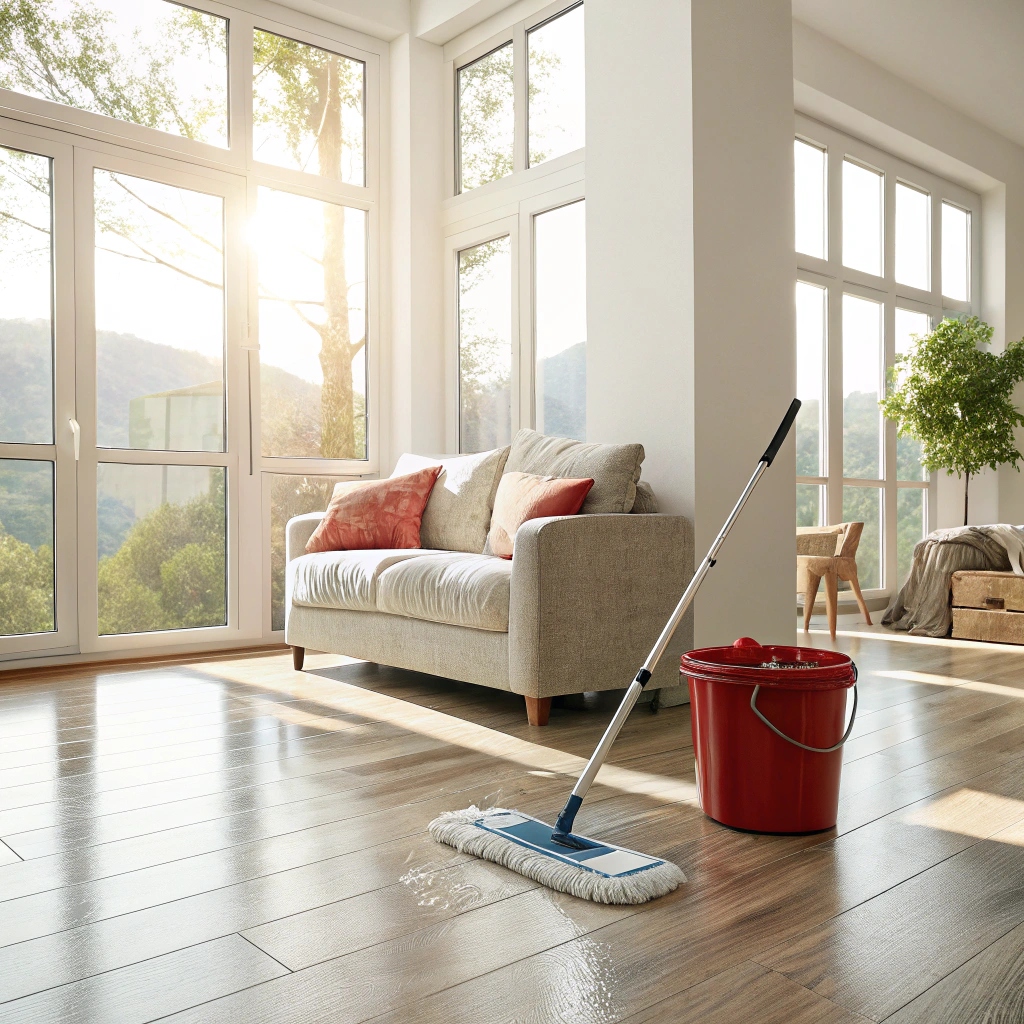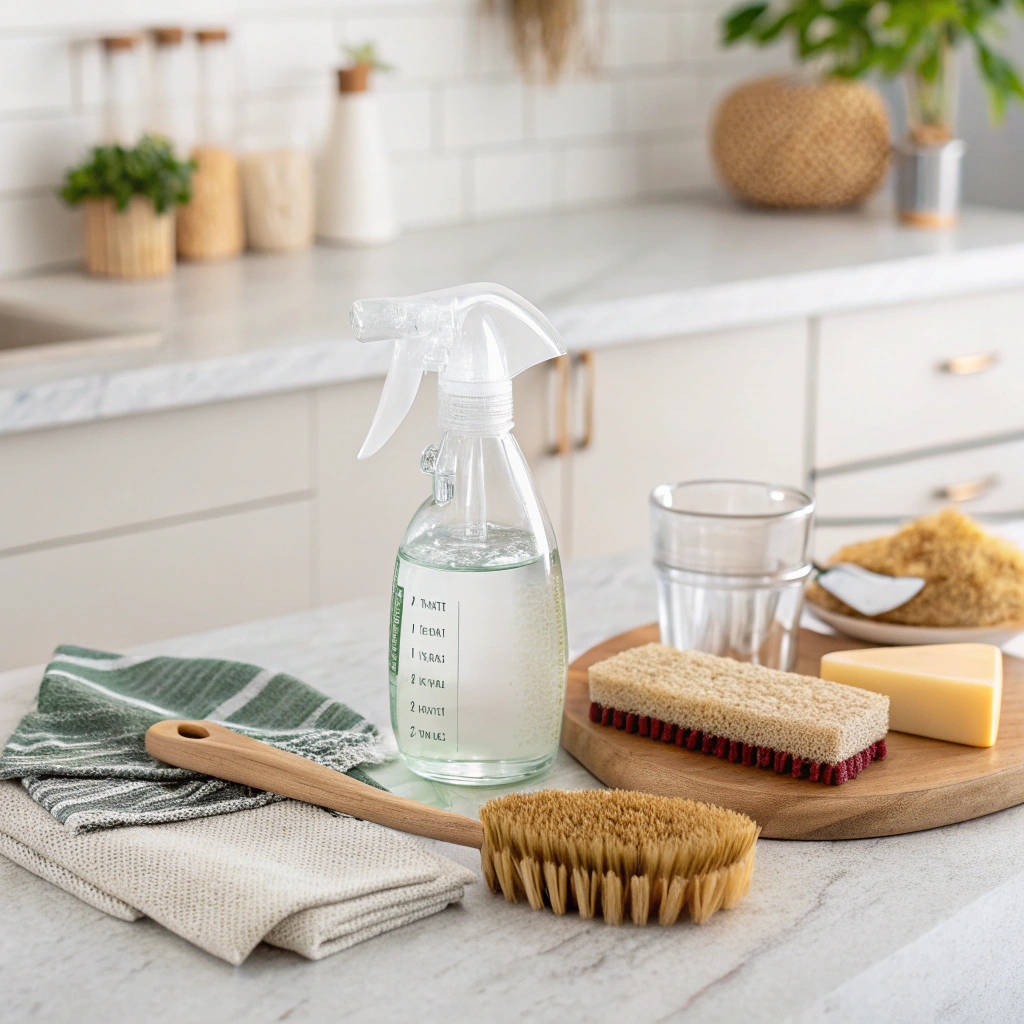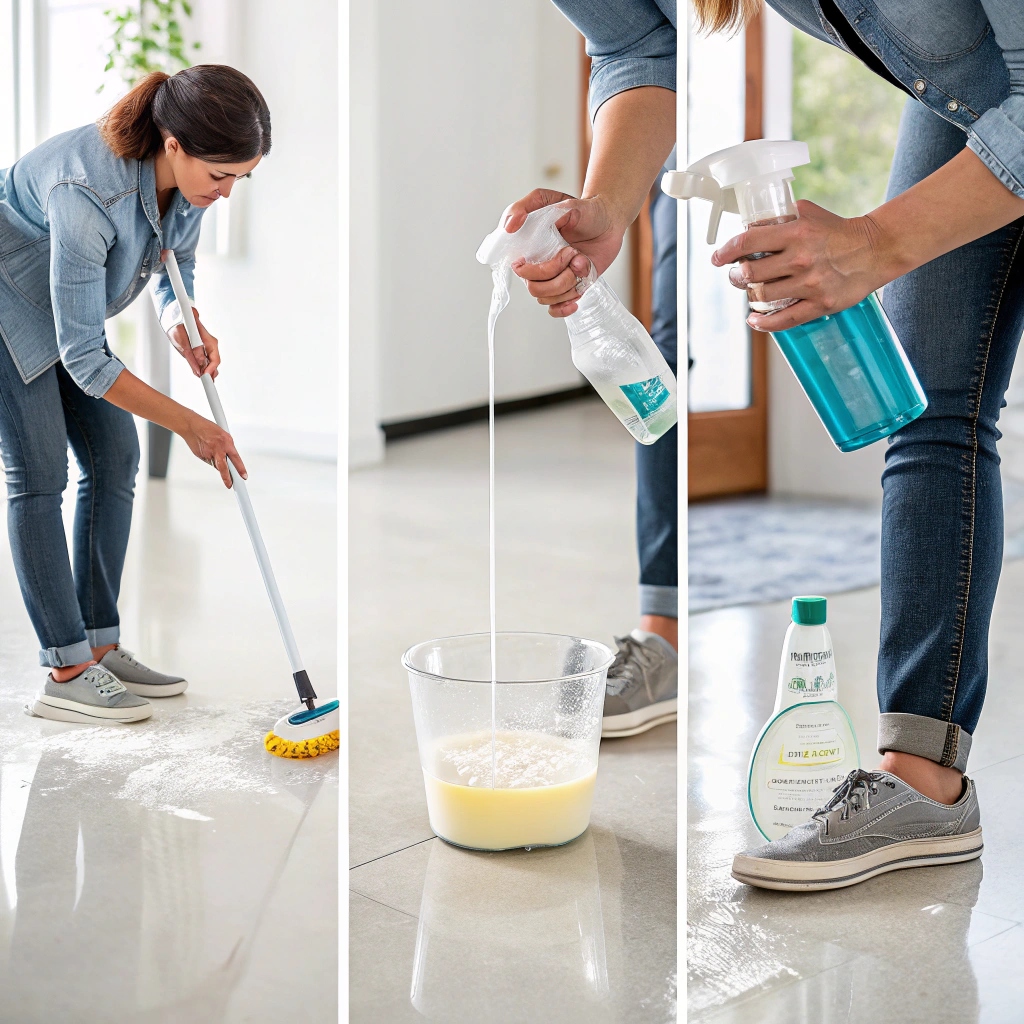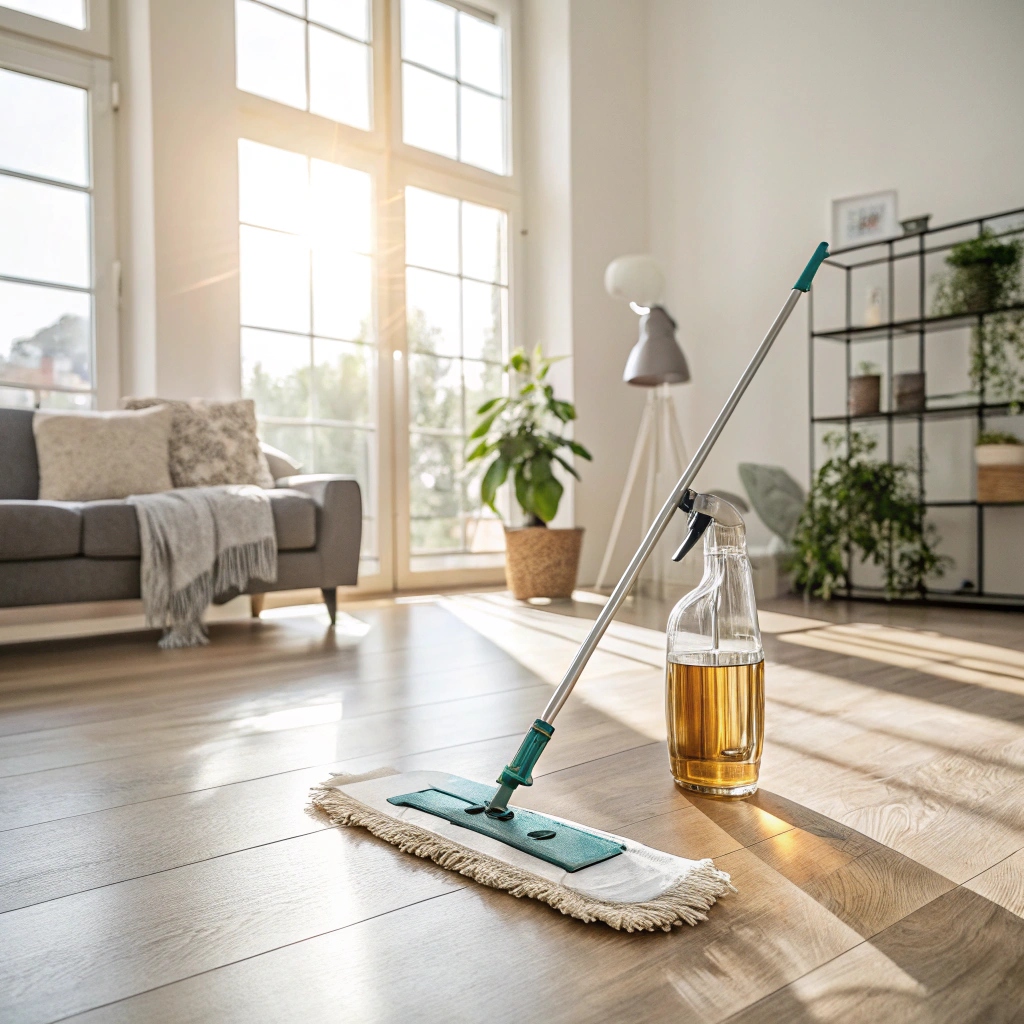Introduction

A clean floor makes a home feel fresh, comfortable, and inviting. But many store-bought floor cleaners contain harsh chemicals that can leave behind strong fumes, sticky residues, or even damage certain surfaces over time. That’s why a homemade floor cleaner is a great alternative—it’s cost-effective, free from harmful additives, and customizable based on your cleaning needs.
Whether you need a homemade floor cleaner for wood, laminate, tile, or concrete, you can create a powerful solution using simple, natural ingredients. The right combination of household staples like vinegar, baking soda, or essential oils can remove dirt, disinfect surfaces, and leave your floors smelling fresh.
In this guide, we’ll explore the best homemade floor cleaner recipes that work for different flooring types. You’ll also learn key benefits, pro tips for making and storing your cleaner, and expert advice on how to achieve streak-free, residue-free results. By the end, you’ll have an all-natural cleaning solution that’s easy to make and safe for your home.
Key Benefits of Homemade Floor Cleaner
Switching to a DIY floor cleaner offers several advantages over commercial products. Here’s why you should consider making your own:
1. Non-Toxic and Safe
Many store-bought cleaners contain harmful chemicals like ammonia, bleach, and synthetic fragrances that can irritate the skin and lungs. A homemade cleaner, made with natural ingredients, is safe for children, pets, and those with allergies or sensitivities.
2. Cost-Effective
A single bottle of commercial floor cleaner can be expensive, especially for specialized formulas. Making your own cleaner using ingredients you likely already have at home saves money over time.
3. Customizable for Different Floors
Different flooring types require different cleaning solutions. A DIY cleaner allows you to tailor your recipe to suit wood, laminate, tile, or concrete floors, ensuring the best results.
4. Eco-Friendly
Most commercial cleaners come in plastic packaging and contain ingredients that can harm the environment. Homemade cleaners reduce waste and use biodegradable ingredients.
5. Leaves Your Home Smelling Fresh
By adding essential oils like lavender, lemon, or tea tree, you can enhance the fragrance of your floor cleaner naturally, avoiding artificial perfumes and overpowering chemical scents.
Ingredients for Homemade Floor Cleaner

Here are the basic ingredients you’ll need to make a simple, effective DIY floor cleaner:
- White Vinegar – Cuts through grease and grime while disinfecting surfaces.
- Baking Soda – A gentle abrasive that helps lift stains and deodorizes floors.
- Castile Soap or Dish Soap – A mild soap to help break down dirt without leaving residue.
- Rubbing Alcohol – Speeds up drying and adds a disinfecting boost.
- Essential Oils (Optional) – Lemon, tea tree, eucalyptus, or lavender for fragrance and added antibacterial properties.
- Warm Water – The base for mixing all ingredients.
Note: If your floors are sensitive to vinegar (such as some hardwood or stone floors), you can substitute with lemon juice or mild soap.
Instructions: How to Make and Use Homemade Floor Cleaner

All-Purpose Homemade Floor Cleaner Recipe
Ingredients:
- 2 cups warm water
- 1/2 cup white vinegar
- 1 tablespoon baking soda
- 1 teaspoon liquid dish soap or Castile soap
- 10 drops essential oil (optional)
- 1/4 cup rubbing alcohol (optional, for faster drying)
Instructions:
- In a large spray bottle or bucket, combine all ingredients.
- Stir or shake well to dissolve the baking soda and blend everything.
- Test on a small, hidden section of the floor to ensure compatibility.
- Use a mop or microfiber cloth to clean the floor, working in sections.
- Let it air dry or wipe with a clean, dry mop.
Pro Tips and Variations
For Hardwood Floors
- Skip the vinegar if your floors are waxed or sealed with polyurethane.
- Use warm water, a few drops of Castile soap, and essential oils instead.
For Laminate Floors
- Use a minimal amount of liquid to prevent water damage.
- Mix 2 cups of warm water with a teaspoon of dish soap and 1/4 cup rubbing alcohol for a streak-free finish.
For Tile and Grout
- Baking soda and vinegar work well, but avoid using too much on stone tiles.
- Scrub grout lines with baking soda and water paste for deep cleaning.
For Concrete Floors
- Use 1/2 cup vinegar, 1 tablespoon dish soap, and 1 gallon of warm water.
- Add a few drops of tea tree oil for its antifungal properties.
Conclusion
Using a homemade floor cleaner is a simple, effective way to keep your floors spotless without exposing your home to unnecessary chemicals. Whether you have hardwood, laminate, tile, or concrete floors, there’s a natural cleaning solution that fits your needs. With easy-to-find ingredients and customizable recipes, you can achieve professional-level cleanliness at a fraction of the cost. Start today and enjoy a fresher, healthier home environment.
FAQs
What’s the best homemade floor cleaner?
The best DIY cleaner depends on your floor type. A mixture of warm water, white vinegar, dish soap, and essential oils works well for most surfaces. For wood floors, replace vinegar with mild soap to prevent damage.
What is the best solution to mop floors with?
For general cleaning, a solution of water and mild dish soap is safe for most floors. If disinfecting, add vinegar or rubbing alcohol.
Is vinegar and baking soda good for cleaning floors?
Yes! Vinegar dissolves grime while baking soda lifts stains. However, avoid using them together on stone or hardwood floors to prevent damage.
How do you make a no-rinse floor cleaner?
Mix 2 cups warm water, 1/4 cup rubbing alcohol, and a few drops of dish soap. The alcohol helps evaporate moisture quickly, leaving no streaks or residue.

